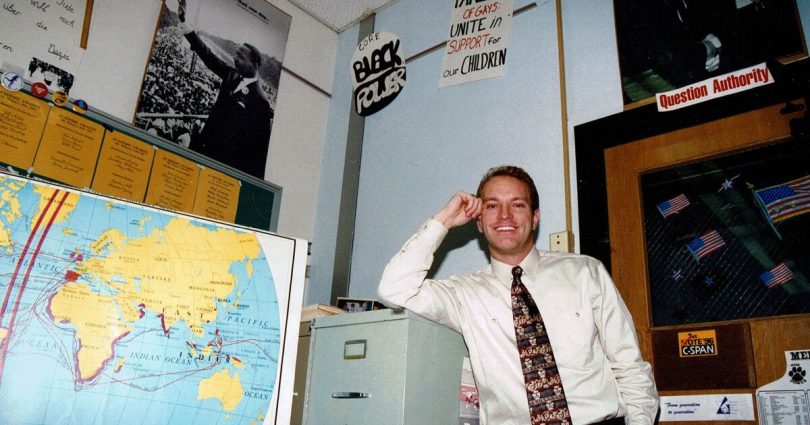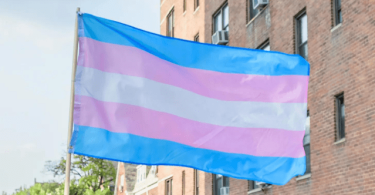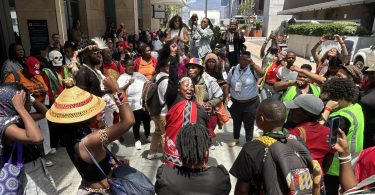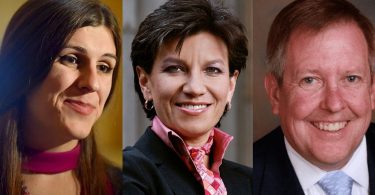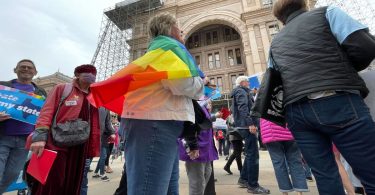Thirty years ago this month – on the evening of October 3, 1994 – a few dozen students at the University of Missouri–St. Louis gathered inside a small auditorium to kick off a film festival to celebrate the first Lesbian and Gay History Month, as it was called at the time.
Ten films were screened on four successive Monday nights – documentaries like Before Stonewall (1984), Silent Pioneers (1985),and West Coast Crones: A Glimpse into the Lives of Nine Old Lesbians (1991; as well as feature films like Parting Glances (1986) and the closing-night special, The Boys in the Band (1970).
Back then, LGBTQ+ history was largely still closeted. We hoped in successive years that this new month would be recognized at secondary schools, in higher education, and in communities nationwide. That night, however, we didn’t know if anyone would even join us or if the entire concept of an LGBTQ+ History Month was doomed to failure.
Never Miss a Beat
Subscribe to our newsletter to stay ahead of the latest LGBTQ+ political news and insights.
Flier for the University of Missouri–St. Louis film festival to honor the first ever LGBTQ History Month. Provided by Rodney Wilson.
In addition to being a graduate student, I was a young high school social studies teacher in the St. Louis suburbs in the early 1990s. Queer people did not exist in our lessons. My late-1980s American history textbook – an 800-page survey of the history of the United States from indigenous America to the Cold War confrontation with the Soviet Union – entirely omitted queer history.
The world outside my classroom spun with breaking LGBTQ+ news – Ryan White, Allen Schindler, the 1993 March on Washington, marriage equality, Don’t Ask Don’t Tell, the film Philadelphia, AIDS, Pedro Zamora, electoral politics, and a decade that saw “entertainment come out of the closet,” according to Entertainment Weekly. Yet little of this was discussed in high schools.
The first history month in the world, the origin of all history months, was called Negro History Week when it was first observed in February 1926. It was founded by Dr. Carter Woodson, who spent his life advocating for the transformative power of African American history. The son of a formerly enslaved mother and father, he was a historian and scholar who believed knowing the history that preceded one’s birth frees the mind and liberates the spirit.
As the 20th century progressed, particularly after the Second World War, a wave of righteous unrest arose among marginalized peoples all over the world. Colonial yokes were cast aside. Second-class citizens demanded first-class standing. Multiple civil rights movements were born. Previously unstudied groups began to demand inclusion – in the classroom, in textbooks, in governments, in museums; and one identity group after another adopted Dr. Woodson’s viewpoint that their history is as significant as that of the majority’s – and these newly awakened groups adapted his techniques.
Latinos in California founded National Hispanic Heritage Week in 1968. Asian and Pacific Islander Americans inaugurated their own heritage month a few years later. The first Women’s History Week was organized in 1978. Indigenous groups in the United States claimed November as Native American Heritage Month in 1986.
Many others have since followed – Irish, Deaf, Jewish, Arab, and Italian Americans all have their own history months now. These history months are each community’s opportunity to place its history on the calendar, to jostle their way into the conversation about personal, group, and national identities and challenge the view that history is mainly white, male, straight, cisgender, or Christian.
In January 1994, I sent a letter to all the known queer organizations in the United States regarding my desire to establish October of that year as Lesbian and Gay History Month, adapted from Dr. Woodson’s model. I selected October because it’s in the academic year; the first and second Marches on Washington were in October; and October 11 had been designated National Coming Out Day since 1988.
Endorsements came quickly. A national coordinating committee of highly capable and energetic educators and activists was organized. We gathered resources, bibliographies, essays, and activity recommendations and created a curriculum packet.
There was controversy, of course. On the floor of the House of Representatives, Republican Rep. Dan Burton of Indiana shouted that parents should “scream bloody murder” about this new history month. And Beverly LaHaye, head of the conservative women’s group Concerned Women for America, wrote to her followers that “every Christian parent in America will view this official observance of homosexuality as a direct assault on innocent, unsuspecting children.”
But the idea survived the hysteria.
Today, LGBTQ+ History Month is a well-established occasion. Syracuse University, for example, hosted twenty-five History Month events last October. Equality Forum’s History Month Icons Project has recognized 558 queer icons since 2006 – 31 every October for 18 years. And this publication, LGBTQ Nation, has published dozens of queer history articles every October since 2011.
In the thirty years LGBTQ+ History Month has existed, nineteen other international locations have established a history month, starting with the UK in 2005 and most recently New Zealand, which inaugurated its history month this past July with a day-long event at the National Library.
History month teams are now connected to each other through the International Committee on LGBTQ+ History Months (ICoHM), founded in 2021. The organization helps the teams cheer each other on and encourage the creation of more history months across the world, including (we hope) in Brazil, Spain, and Venezuela in 2025.
As Dr. Carter Woodson envisioned in 1926, history months hand a megaphone to precious, previously untold stories. This increased historical literacy makes us smarter, stronger, and more secure.
History gifts young people a story in which they can write their own chapters. It gives them a foundation, a boost, and a foundation from which to see their lives as part of an endless stream of humanity, rather than an isolated occurrence.
History Months are vocal insistence that we won’t be silent again and that every human being has a right to their history, to their stories, and to their people. LGBTQ+ History Month has been asserting these fundamental human rights for thirty years because we adamantly believe that the world is a better place when everyone’s history is esteemed – in the schoolhouse, in culture, in our memories, and in our institutions.
As another October approaches, that film festival thirty years ago seems a distant memory, but the hopes and dreams for what October can mean to the LGBTQ+ community are as real today as they were in 1994.
Happy LGBTQ+ History Month 2024!
Rodney Wilson has been an educator since 1990. He is the founder of LGBTQ+ History Month, which is marking its 30th anniversary this October. A 2019 doc-short about the early years of his career as an out-gay Missouri high school teacher promoting LGBTQ-inclusive history is called Taboo Teaching: The Story of Missouri Teacher Rodney Wilson.
Subscribe to the LGBTQ Nation newsletter and be the first to know about the latest headlines shaping LGBTQ+ communities worldwide.
Don’t forget to share:

